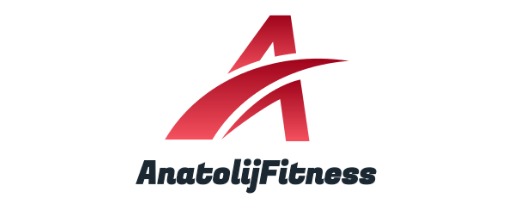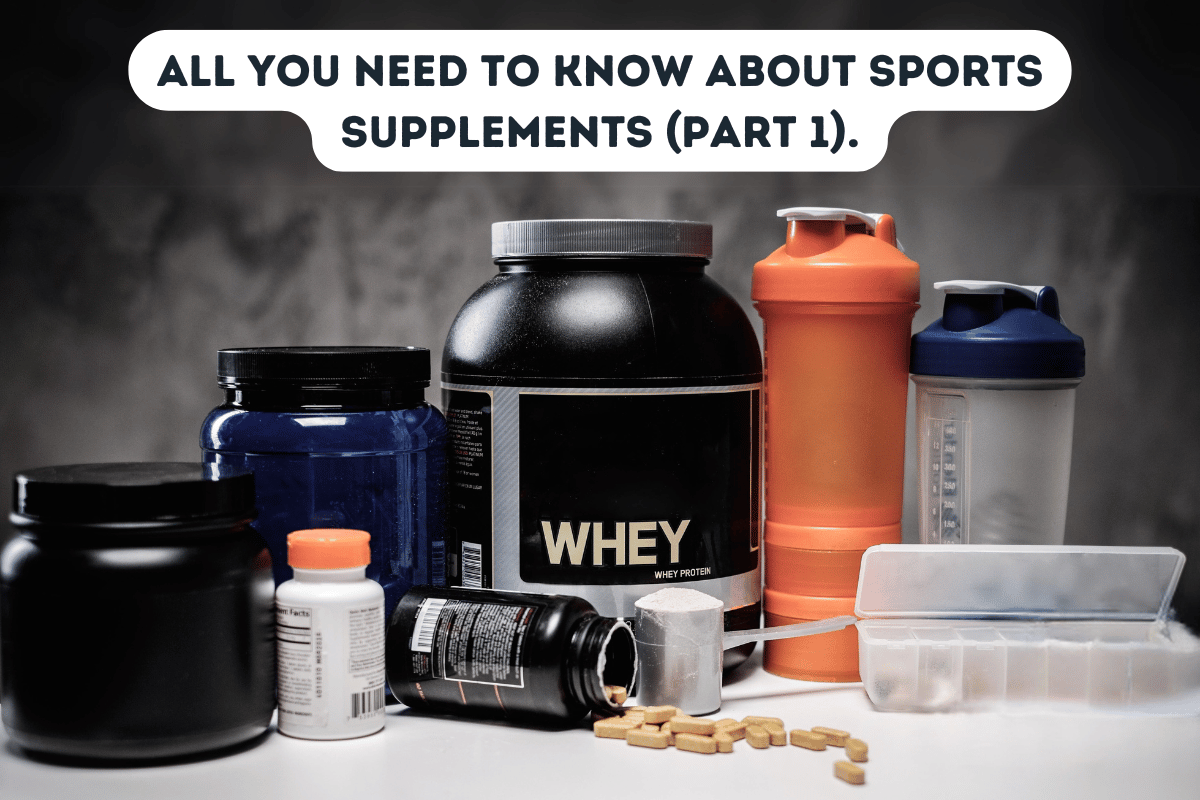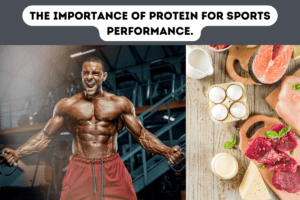There is a huge variety of sports supplements in the market, such as protein supplements, creatine, pre-workouts, other powders, pills, drinks, and bars. All these products claim to increase muscle, strength, endurance or burn fat, but can these products speed up your progress and give you better performance or increased muscle strength and size? When you decide to use sports supplements, you must understand that although some supplements and ergogenic aids are beneficial when used appropriately, many are ineffective and possibly unsafe. According to research, it was found that more than 50% of supplements sold contain contaminants not listed on the label, many of which could lead to a positive dope test if taken during competition. So, you should be aware of what you buy.
Because there is a lot of information about different supplements, I will divide everything into two parts. In part 1 of this article, I will explain the main supplements for muscle mass and strength, endurance and recovery, which you can find in the market. We will discuss which are working and are safe for health and which supplement is better to avoid (because of health risks or they are just ineffective). In the second part of this article, we will discuss supplements for weight loss and general health. I will also give you a general overview of supplements (which have strong evidence of effectiveness and which have a pour of evidence or are even prohibited).
Who may need sports supplements?
First, you need to understand that there is no replacement for a well-balanced diet that can provide you with all necessary macro and micro-nutrients. Before buying supplements, consider how to get the same benefits from a balanced diet. You must remember that supplements have a risk of contamination with prohibited substances not listed on the label.
There is currently no specific European or national legislation governing the safety of sports supplements. All food supplements are classified as foods. This means they are not subject to the same strict manufacturing, safety testing or labelling requirements as licensed medicines. However, there are situations when you may need additional supplements:
- Athletes who are larger in size or engaged in high-volume/intense training may need more calories than average people. Their calorie requirements can reach 5000 or even 10,000 kcal/day. It is tough to get all these calories just with food alone.
- Athletes with busy training and competitive schedules, as well as those who travel a lot, find having a protein bar or protein shake more convenient than constantly cooking lots of food.
- Athletes who engage in sports that benefit from rehydration or refueling during an event and when a sit-down meal is impractical (such as during the Tour de France). Basically, when you need a meal on the go, that will digest and absorb quickly and give you immediate extra energy.
Sports supplements and ergogenic aids
To understand better what sports supplements there are, we can divide them into two main categories: ergogenic aids and nutritional supplements. The role of nutritional supplements is to supplement the nutrient intake of the diet. These include sports foods and drinks as well as vitamin or mineral supplements. They are often used to meet unusually high nutritional demands during training or competition. Here are some of them:
- Sports drinks. Many commercial sports drinks come in the form of a powder or as a ready-made drink. The most common drinks are isotonic and are a good source of both fluid (water) and fuel (carbohydrates). They can be used during exercise or may provide post-exercise rehydration or refueling. You can read more about sports drinks and hydration in my article “Hydration strategies for athlete: How to keep your performance at its peak”.
- Sports gels and high carbohydrate supplements. Sports gels come in the form of 30–40 g sachets or larger tubes. High CHO supplement comes in the form of powder or liquid. Both sport gels and high carbohydrate supplements are used for high CHO requirements at a higher intensity level of training, for CHO loading, post-exercise CHO recovery or during activities where CHO requirement exceeds fluid needs.
- Liquid meal supplement. Liquid meal supplements come as a powder (to be mixed with water or milk) or liquid. They supplement high-energy/CHO/nutrient dietary requirements during heavy training, competition, or weight gain. They often have a high protein content and provide a low-bulk meal replacement, which is useful for pre-exercise or pre-event. Liquid meal supplements are a useful, portable form of nutrition for the travelling athlete.
- Sports bar. Sports bar supplements generally come in a 50–60 g bar. They provide a CHO source during exercise and replenish CHO, protein, and micronutrients post-exercise. Sports bars are a practical, portable form of nutrition for the travelling athlete.
As to ergogenic aids, it is a substance that claims to improve exercise performance and enhance athletic or physical performance capacity. All these ergogenic aids can also be divided into two main categories: Supplements for improving muscle mass and strength and endurance and recovery supplements. Also, we can include one more category separately: supplements for weight loss and general health. The most popular supplements for improving muscle mass and strength include protein supplements, amino acids, creatine, HMB, ZMA (zinc/magnesium aspartate) and a group of supplements that are popular but banned by the World Anti-Doping Agency (WADA) – prohormones. Supplements for endurance and recovery include branched-chain amino acids (BCAAs), bicarbonate, caffeine, carnitine, creatine, ephedrine, and glutamine. Now, let’s look separately at each supplement and its effectiveness.
Supplements for muscle mass and strength.
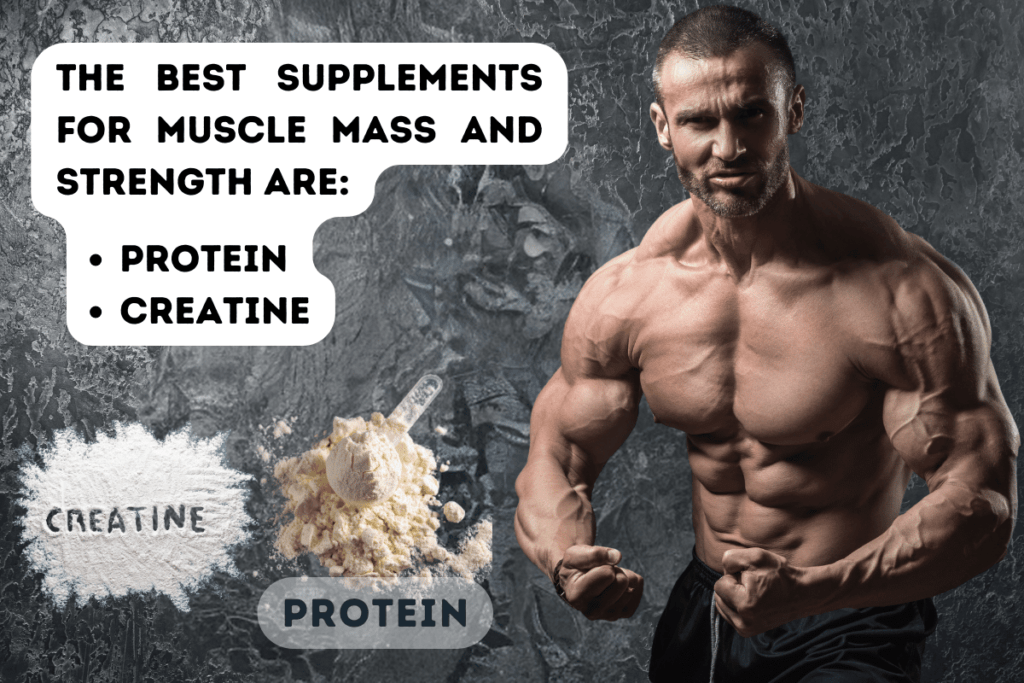
Protein supplements
Protein supplements can be divided into three main categories: protein powders (which you mix with milk or water into a shake), ready-to-drink shakes and high-protein bars. They may contain whey protein, casein, soy protein or a mixture of these. Whey protein is derived from milk and contains high levels of the essential amino acids, which are quickly absorbed and are used by the body for muscle repair. Casein, also derived from milk, provides a slower-digested protein and high levels of amino acids. It may help protect against muscle breakdown during intense training (very good to use before bedtime to save your muscles from breakdown during sleep). Soy protein is less widely used in supplements but is a good option for vegetarians and vegans.
Protein supplements provide a concentrated source of protein to support your usual food intake. Resistance training increases muscle protein turnover; you may need more protein than the average person. For the average person, it is enough to get 0,75 g/kg of body weight of protein. It would be between 1.2 and 1.4 g per kg of body weight for endurance athletes. For strength athletes, about 1.4 and 1.8 g per kg body weight. For example, if you are a strength athlete weighing 80 kg, you would need about 144 g of protein a day.
It’s always better to get these amounts of protein from food. Most athletes can get enough protein from 2–4 daily portions of meat, chicken, fish, dairy products, eggs, and pulses. Vegetarians can meet their protein needs by eating a variety of plant proteins, such as tofu, Quorn, beans, lentils, and nuts, each day. But, if it is impossible to get enough protein from food alone, you may consider supplementation. An excessive protein intake, whether from food or supplements, is not harmful but offers no health or performance advantage. So, there is no need to use more protein than necessary.
Amino acid supplements
The market’s most popular amino acid supplements are the branched-chain amino acids (BCAAs): valine, leucine, and isoleucine. The theory behind BCAA supplements is that they can help you prevent muscle tissue breakdown during intense exercise. They are converted into two other amino acids – glutamine and alanine, which are released in large quantities during intense aerobic exercise. Also, they can be used directly as fuel by the muscles, particularly when muscle glycogen is depleted.
BCAA probably won’t improve your endurance, but 6–15 g doses may help improve your recovery during strenuous training by reducing muscle protein breakdown and post-exercise injuries. However, because many recovery drinks contain a mixture of carbohydrates, protein, and amino acids, there is little point in taking a separate BCAA supplement. BCAAs are relatively safe as they are normally found in protein in the diet, but excessive intake may reduce the absorption of other amino acids.
Creatine
If you have a limited budget and can buy just one sports supplement, it’s better to try creatine supplements. If you train with weights or do any sport that includes repeated high-intensity movements, such as sprints, jumps, or throws, creatine supplements may help increase your performance, strength, and muscle mass. However, they are not effective for long-term endurance activities, like running a marathon, for example.
Creatine supplements help promote protein manufacture and muscle hypertrophy (by drawing water into the cells). They can also help increase lean body mass and reduce muscle acidity, which will allow more lactic acid to be produced before fatigue sets in. Also, they help reduce muscle protein breakdown after intense exercise, resulting in greater strength and improved ability to do repeated sets.
For some people, it may be less effective. It may be partly due to differences in muscle fibre types. Fast-twitch (FT) fibres build up higher concentrations of creatine than slow-twitch (ST) fibres. Also, it can work better on beginners and less on experienced athletes. The best way to take creatine is together with carbohydrate sources because carbohydrates raise insulin, which, in turn, helps creatine uptake by muscle cells. Also, a good idea is to take creatine immediately after exercise, together with the post-exercise meal, which will help to boost muscle creatine levels.
Also, there are different creatine-loading strategies. One is a quick creatine loading strategy, which recommends using creatine four times a day by 5-7g (20-25g). This strategy works, but it’s an inefficient and costly way of getting creatine into your muscles and is more likely to produce side effects such as water retention. Around two-thirds of this creatine ends up in your urine, and only one-third in your cells. Probably the best and most efficient creatine supplementation is to take small quantities at a time – and to slow down the speed of absorption from the gut. That gives the maximum chance of all the creatine consumed ending up in your muscle cells, not your urine. So, another strategy would be to use 6 daily doses of 0.5–1 g and sprinkling it on your food to increase the absorption rate. Do it for about 5 or 6 days, and after that, use a maintenance dose of 2 g a day to maintain muscle creatine levels. Alternatively, you can load up with 3 g a day over 30 days.
The main side effect of creatine supplementation is weight gain. This happens due to extra water in the muscle cells and partly to increased muscle tissue. While this is desirable for bodybuilders and people who work out with weights, it could be disadvantageous in sports where there is a critical ratio of body weight and speed, for example, long-distance running. As to safe consumption, short-term and low-dose creatine supplementation appears to be secure; the effects of long-term and high-dose creatine supplementation, alone or in combination with other supplements, remain unknown. Always remember, the best anabolic for your training is real food. Supplements are there just to supplement your training, not to change your food.
HMB
HMB (beta-hydroxy beta-methylbutyrate) is made naturally in the body from the BCAA, leucine. No one knows exactly how HMB works, but it is reported that it helps protect muscles from excessive breakdown during exercise, accelerates repair, and builds muscle. HMB works best as an oral supplement when taken with creatine. HMB could help reduce exercise-induced muscle damage in resistance training for clients new to exercise, but it is unlikely to benefit more experienced athletes. More studies are required to discover all the effects of HMB. No side effects have yet been found.
ZUMA
ZMA supplements combine zinc, magnesium, vitamin B6 and aspartate in a specific formula. It is marketed to bodybuilders and strength athletes as a testosterone booster. Manufacturers claim that ZMA can boost testosterone production by up to 30%, strength by up to 11%, and improve muscle mass and recovery after exercise. The main idea is that zinc is needed for growth, cell reproduction and testosterone production. Zinc deficiency may reduce the body’s anabolic hormone levels and adversely affect muscle mass and strength. Magnesium helps reduce levels of the stress hormone cortisol, which affects muscle breakdown. A magnesium deficiency may increase catabolism. Taking ZMA supplements may help increase anabolic hormone levels and keep high cortisol levels at bay by correcting a zinc and magnesium deficiency. If you have deficiencies in these micronutrients, you will benefit from taking ZMA supplements, but you can easily get these micronutrients from a well-balanced diet. So, before taking supplementation, try to correct your diet first.
Pre-hormones/ pro-hormones/steroid precursors/testosterone boosters
Pre-hormone supplements include DHEA, androstenedione and norandrostenedione, saw palmetto, Tribulus terrestris, and other weak androgenic steroid compounds. Manufacturers claim the supplements will increase testosterone levels in the body and produce similar muscle-building effects to anabolic steroids, but without the side effects. Current research does not support such claims and shows that andro supplements and DHEA have no significant testosterone-raising impact and no effect on muscle mass or strength. Pre-hormones are highly controversial supplements, and it is best not to use them.
Supplements for endurance and recovery.
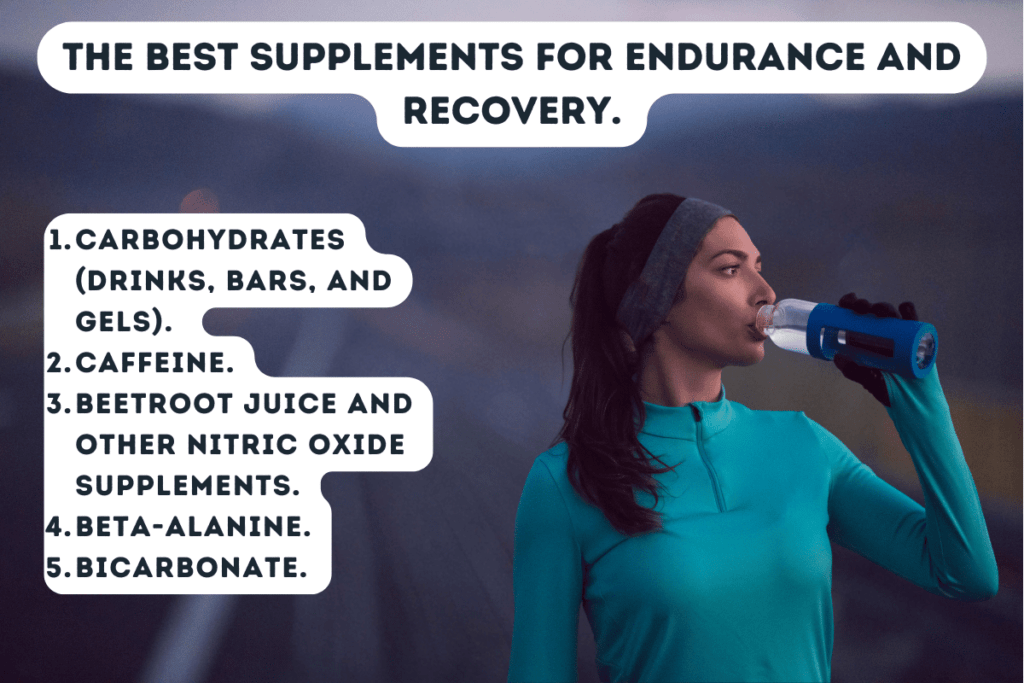
Antioxidant supplements.
The primary antioxidants are beta-carotene, vitamin C, vitamin E, manganese, selenium, zinc, different phytochemicals, bioflavonoids, and tannins. These antioxidants help protect an athlete against exercise-related cell damage. Intense exercise increases oxygen consumption and the generation of free radicals. Free radicals can harm cell membranes, disrupt DNA, destroy enzymes, and increase the risk of atherosclerosis and cancer. High levels of free radicals are also associated with post-exercise muscle soreness. All antioxidants are enzymes and nutrients in the blood that disarm free radicals.
Although antioxidant supplements can reduce post-exercise oxidative stress, this isn’t good because we need oxidative stress to stimulate muscle growth. All this means that taking extra antioxidant supplements will decrease training efficiency and prevent muscle adaptation to training. Don’t get me wrong; we need antioxidants for health and to fight free radicals. But we don’t need extra supplementation. We can get enough antioxidants from food sources like fruits and vegetables. Don’t waste your money on extra supplementation; buy natural foods.
Caffeine
Caffeine is one of the most widely consumed drugs in Europe. It is found in many drinks and foods, such as coffee, tea, cola, and chocolate. It is also added to several energy drinks, sports drinks, and gels. Caffeine acts on the central nervous system, increasing alertness and concentration, which is advantageous for many sports.
Ingesting caffeine at 1–3 mg can improve endurance performance. Performance benefits occur soon after consumption, so caffeine should be consumed before exercise, spread through exercise, or taken late in exercise as fatigue begins. It also depends on individual responses, so you should experiment during training to find the dose and protocols that suit you.
It is believed that caffeine stimulates adrenaline release, increasing lipolysis and free fatty acid availability. This means that more fatty acids will be used for energy and less glycogen, which allows exercise to be performed for longer before fatigue sets in. This effect on increasing lipolysis is one reason caffeine is also considered a weight loss supplement. Also, caffeine can increase the strength of muscle contractions by releasing calcium from its storage sites in muscle cells.
All in all, using caffeine effectively improves your strength or endurance training. The best way to get a better ergogenic effect is to cut down on caffeine for several days before training or competition. Then, immediately before exercise, take approximately 150–200 mg of caffeine from strong coffee or an energy/sports drink. This will help you to keep exercising longer and harder. It is better to drink coffee with no or only a small amount of low-fat milk because milk slows down the absorption of caffeine. Also, you need to know that caffeine’s effect hurts creatine loading. So, it is better not to consume any foods or drinks containing caffeine for several days before using a creatine-loading strategy. Also, some people can be sensitive to caffeine. Caffeine can give them side effects like anxiety, trembling and sleeplessness. If you are sensitive to caffeine, it is best to avoid it. More facts about caffeine can be found in my article: “All you need to know about caffeine“.
Sodium bicarbonate
During training performed at maximum intensity for 30 seconds–2 minutes, lactic acid is produced. As lactic acid increases, it initiates muscle fatigue through a buildup of hydrogen ions that lower the pH within the working muscle cells. This lowering of the pH makes the inside of the muscle cells more acidic. All these limit muscle contraction, reducing exercise capacity and causing fatigue. Sodium bicarbonate helps increase the blood’s pH, making it more alkaline. This means lactate will be removed faster, and you can continue exercising at a high intensity a little longer.
Sodium bicarbonate, more commonly known as baking soda, is effective as a performance enhancer for activities that are performed at a maximum intensity lasting between 60 seconds and 10 minutes. Such activities include cycling, swimming 100–200 m, and running. A good example is boxing, which consists of small, intense sequences interspersed with short recovery periods. Events shorter than 1 minute in duration (such as high-intensity weight training) and activities with intensity sustained for periods longer than 10 minutes (such as distance running) seem to show no ergogenic effect following bicarbonate supplementation.
Sodium bicarbonate supplementation can be taken as capsules or powders. The most common dose for bicarbonate loading is 0,2 – 0,3 g/kg, which is about 14-21g for a 70 kg person. It should be consumed gradually with at least 500 ml water 60-90 mins before the start of exercise to minimize GI symptoms (bloating, abdominal discomfort, and diarrhoea).
Beta-alanine
Beta-alanine is a nonessential amino acid used to make carnosine in the body, which reduces lactic acid accumulation in your muscles during exercise, leading to improved athletic performance. This supplement can be beneficial for sports involving high-intensity efforts lasting 1-4 minutes, for sports that involve repeated sprints (tennis or football), and for bodybuilders. You should take beta-alanine around 3 grams daily for six weeks. After use, a maintenance dose of 1,2g/day. Beta-alanine consumption looks safe. However, very high doses can lead to paresthesia (skin tingling). Also, you can get beta-alanine from such foods as meat, poultry, and fish. Beta-alanine can be combined with other supplements like sodium bicarbonate and creatine for an even better effect.
Carbs (drinks, bars, and gels)
We already spoke about them when I mentioned sports supplements. If you exercise for over one hour, you may benefit from extra carbs during your training. In this situation, you may need something that will digest and absorb quickly and give you immediate extra energy. In this scenario, you may benefit from different sports bars, gels, and drinks. What is better to consume is your own preference: an energy bar, drink or gel. The main benefit of such products is their convenience because they are easy to carry and eat. But always ensure that you have your bar or gel with enough water to replace fluids from lost sweat and digest the bar. If you don’t consume enough water, these bars and gels can cause gastrointestinal discomfort.
Glutamine
Glutamine is a nonessential amino acid. It can be made in the muscle cells from other amino acids, and its primary role is to support your body’s immune and digestive systems. During periods of heavy training or stress, your blood levels of glutamine fall, making your immune system weak and putting you at risk of infection. Also, during heavy training, your glutamine levels in muscles fall as well, which can result in a loss of muscle tissue. The logical answer is that we need glutamine for muscle gain and exercise performance.
Unfortunately, according to studies, glutamine does not affect muscle mass or performance. However, some research suggests that glutamine supplements may decrease muscle soreness and improve recovery after intense exercise. However, glutamine is naturally found in eggs, beef, skimmed milk, tofu, and white rice. Also, many protein and meal replacement supplements contain glutamine in them. So, if you follow a more animal-based diet or use protein supplements, there is no need to take extra glutamine.
Taurine
Taurine is a nonessential amino acid produced naturally in the body. It can be found in meat, fish, eggs, and milk. Also, taurine can be found in protein drinks, creatine-based products, and sports drinks. It is the second necessary amino acid in muscle tissue after glutamine. Taurine is sold as a single supplement but more commonly as an ingredient in certain protein drinks, creatine-based products, and sports drinks. Manufacturers of taurine supplements claim that taurine can help increase muscle mass and reduce muscle tissue breakdown during intense exercise. But is it true?
Taurine has many roles in the body, including brain and nervous system function, blood pressure regulation, fat digestion, absorption of fat-soluble vitamins and control of blood cholesterol levels. However, as to sports performance, according to studies, additional taurine supplement shows little or no effect on improving sports performance. You can easily get enough taurine from an animal-based diet, protein, or creatine-based products. Taurine is harmless in the amounts found in protein and creatine supplements. Very high doses of single supplements may cause toxicity.
Nitric oxide supplements
Nitric Oxide (NO) is a gas that is involved in vasodilation. It is a process that increases blood flow to muscles, allowing better delivery of nutrients and oxygen. The idea behind such supplements is to improve the muscle pump when lifting weights and promote recovery and muscle growth. One of such supplement is L-arginine. L-arginine is a nonessential amino acid which is made naturally in the body. Supplements containing L-arginine are claimed to help increase muscle pump in the gym and lean body mass and strength. However, most research suggests that L-arginine supplementation has little or no effect on NO production. Some research is saying that L-arginine supplements may give a small benefit for beginners but not for more highly trained athletes. Also, research shows that using other nitric oxide boosters like beetroot juice is better to increase blood NO levels.
Beetroot may help improve performance time in endurance activities lasting from 4 to 30 minutes and high-intensity activities involving single or multiple sprints. The best is to take 500 ml of beetroot juice, 70 ml of concentrated shot, or 200g of cooked beetroot 2-3 hours before exercise. Alternatively, athletes can use nitrate loading for 3-7 days before a competition to ensure blood NO levels remain high. And there are no serious side effects from using beetroot juice in such quantities. The only issue can be the temporary pink coloration of urine and stools. Also, nitrates can be found in small amounts of such vegetables as spinach, rocket, cabbage, leeks, and broccoli.
The second part of this article, where we will discuss supplements for weight loss, general health, and general overview of supplements, that are the most effective, can be found here: “All you need to know about sport supplements (Part 2)”.
